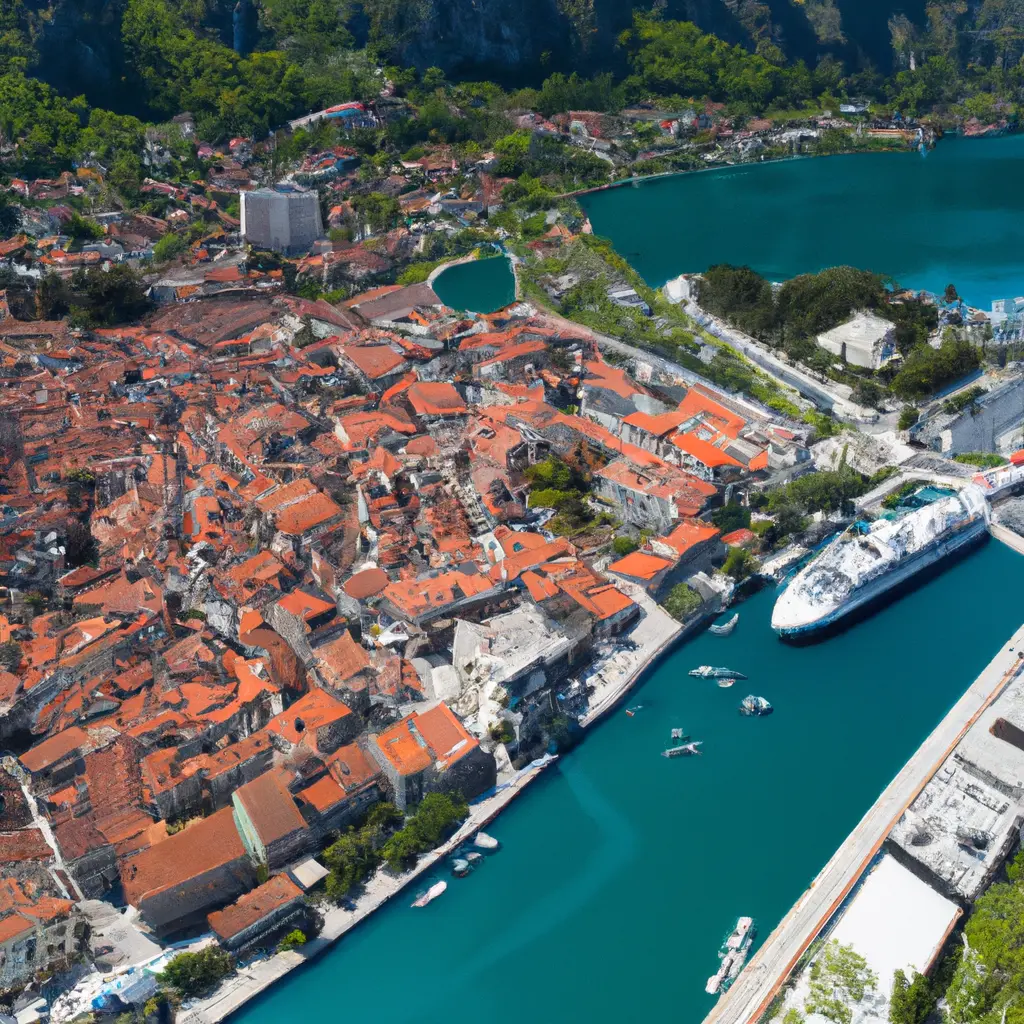The real estate market is at a turning point: what is the situation in the Balkans?

The term "real estate" is usually associated with residential properties. However, it also includes commercial spaces and land plots. According to AlJazeera Balkans, in 2023, there is a decline in the volume of transactions in the vast EMEA region (Europe, the Middle East, and Africa).
The first half of the year is characterized by a significant decline in overall investments due to the macroeconomic situation and interest rates, which have negatively impacted all types of real estate. In the residential sector, mortgage stability has become unstable, while in the non-residential sector, which makes some investments less attractive compared to other asset classes such as fixed income, says Milovan Novakovic, director of Colliers and a member of the Royal Institution of Chartered Surveyors (RICS) in Montenegro.
Investments in the office sector
In the first half of the year, investments in the office sector in the EMEA region decreased by about 60 percent. The most significant decline in investments (by 67 percent) was recorded in Germany. This is followed by a 61 percent decrease in the UK and a 44 percent decrease in France. On a global level, considering all the negative macroeconomic indicators such as interest rates affecting investments in terms of returns, as well as inflation and recession, along with a slowdown in economic growth, we are entering a period of slower and more cautious investments. The Western Balkans region, with its unique characteristics, remains solid. The Balkans are holding strong.
Decrease in transaction volume in Croatia
In Croatia, a decrease in the volume of real estate transactions is observed in Zagreb, which showed a 23 percent decline in the first half of the year. However... - A total of 67,998 properties were sold during this period, which is slightly less than last year for the same period - 68,024. Of these, 15,216 apartments were sold from January to June 2022, while this year during the same time, 14,123 were sold. For the entire year of 2020, 23,634 apartments were sold out of a total of 102,780 properties; in 2021, 27,073 apartments and a total of 123,808 properties; in 2022, 30,493 apartments out of a total of 136,491 real estate transactions, lists Dubravko Ranilović, president of the Real Estate Association at the Croatian Chamber of Commerce (HGK).
Real estate transactions in Serbia
In Serbia, according to data from the Republic Geodetic Authority, the total number of real estate transactions in the first half of 2023 amounted to 60,014. Interestingly, only 7 percent of transactions were made using credit funds, which is 5 percent less than the previous year. The largest share of the total real estate market value comes from apartments - 1.8 billion euros, followed by houses - 257.6 million, building plots - 220 million, commercial properties - 178 million, and agricultural land - 105.3 million euros... The presented data indicates a 12 percent decrease in the volume of real estate transactions compared to the same period last year, but prices mostly remain unchanged.
The situation in Bosnia and Herzegovina
In Bosnia and Herzegovina, the State Statistical Agency announced that in the first half of this year, 1,555 new apartments were sold, which is a 9 percent increase compared to the previous year. Prices continue to rise, so the cost per square meter this year is statistically 6.5 percent higher than last year. There is no overall data on investments in real estate in this country, but the Central Bank has data on credit funds.
“Real estate is primarily an investment asset, while the satisfaction of basic life needs fits into a complex intertwining of interests.




He believes that real estate will always be of interest to all investors in terms of safety. Currently, the attractiveness of government bonds and investments in gold is increasing... "But rest assured, real estate attracts the attention of investors. Timing and decisions related to stressful situations are what matter here. Those who have decided to invest in real estate but are still in the idea stage expect that sellers will be more motivated or even forced to sell at lower prices," he adds.
Banks are particularly cautious. The borrowing real sector is in a difficult position, as is the majority of the population, and the real estate market in the Balkans is not yet fully regulated by law. - Montenegrins are not helped by the fact that 70-80 thousand foreigners, mainly Russians, Ukrainians, and Turks, who are permanent residents, significantly influence rental prices. Over the past two years, rental payments have increased by 20-60 percent. Our population can no longer keep up with this due to their low purchasing power. Ukrainians, in particular, are not buying real estate. This doubles the negative effect. Rental payments are rising, and not enough new buildings are being constructed, which creates a multiplicative effect, according to Novakovic.
The majority of the local population and youth look at countries that do not offer enough solutions and are satisfied with the figures that suggest everything is fine in the market. Solutions do exist, and an example of this is cities like Vienna, where a significant portion of real estate is publicly owned with regulated, more favorable rental payments. Our authorities should implement similar solutions. Instead of permits for building exotic elite properties on the slopes of Mount Trebević, priority should be given to "ordinary" properties with guaranteed prices or rental payments accessible to regular citizens. Priority should be given to those in need of primary housing, concludes Gavran.
Comment
Popular Offers

Subscribe to the newsletter from Hatamatata.com!
Subscribe to the newsletter from Hatamatata.com!
I agree to the processing of personal data and confidentiality rules of Hatamatata




